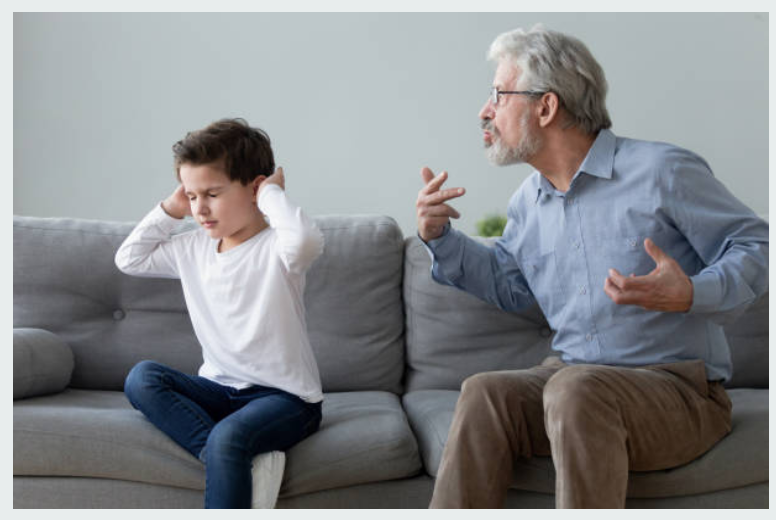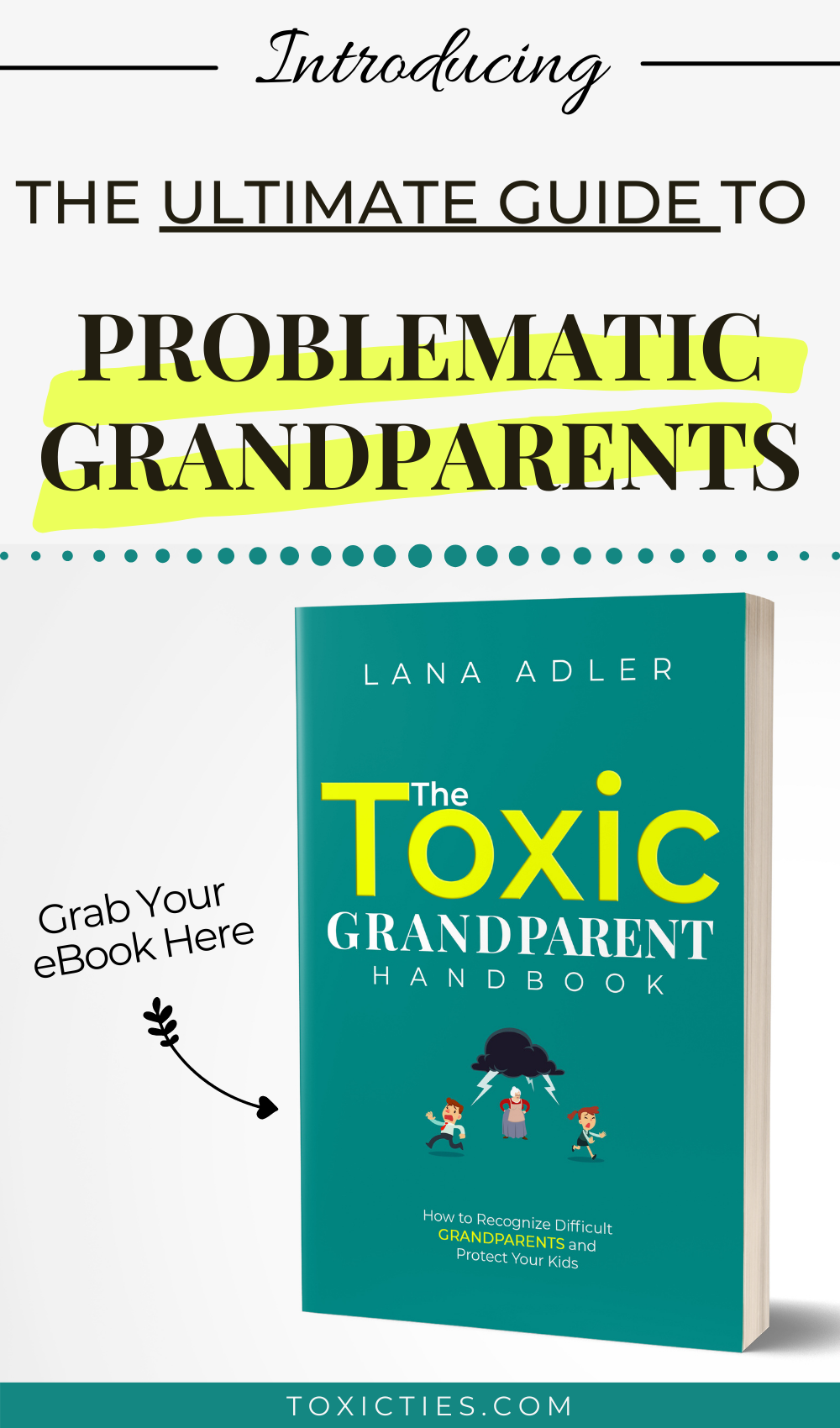Have you ever wondered if the things you habitually say to your child are psychologically damaging?
I think we’ve all wondered that. And at times, we all feel like bad parents.
But how do we know when we’re crossing the invisible line between acceptable and harmful?
I remember one instance when I had a particularly rough time with my daughter. We both got sick with the cold, and my husband was away for the weekend.
Exhausted, feverish, and nauseous, I still took care of her the best I could. But I was getting more and more annoyed with what I perceived as endless whining and ingratitude.
“You’re such a spoiled brat!” I yelled at her, exasperated, and immediately regretted my words.
My 6-year-old daughter looked confused. She paused for a moment to consider what it meant. Then she said:
“I’m not a brat, mommy. I’m just not feeling well.”
I wish I could tell you that that was the last time I yelled at her that weekend. It wasn’t.
Am I the worst parent on the planet? I wondered.
I couldn’t be a complete monster, I reasoned with myself, because every time I lost my temper, I was filled with instant, burning regret.
But I was still far from the parent I wanted to be for my daughter. You know, the one who’s firm but fair, wise but not overbearing, nurturing but not enabling, loving but not over-permissive.
If you’ve read this far, you can relate. You’ve always envisioned yourself as this enlightened parent. Yet you feel like you’re falling short of that vision, even though you love your kids more than anything in the world.
While little frustrations and missteps are understandable, you want to stay away from saying the things that are psychologically damaging to your child.
Here are 11 of the worst things you can tell your kid, and what to say instead.

11 Most Psychologically Damaging Things You Can Say to a Child
It’s important to note that it matters not only what we say to our children but also how we say it. Be gentle and thoughtful.
And remember: you are the most important person in your child’s life. The things you say can stay with them for the rest of their lives.
1. I don’t love you
Most people assume that parental love is a given. However, some parents don’t love their children, and they tell them so.
While saying “I don’t love you” to a child is obviously wrong, not saying “I love you” enough or at all is psychologically damaging, too.
If you, like me, grew up in a family where no one expressed their affection verbally, you know this to be true.
Children need to hear they are loved, even if all their needs are taken care of. It’s incredible how receptive their minds are. They will literally believe everything you say — or don’t say! If they never hear “I love you,” they may start believing they’re not worthy of love.
Mean words hurt. But the silence hurts too.
What to say instead: I love you more than words can say.
2. You were a mistake
Along with “I don’t love you,” “You were a mistake” is one of the worst things you can ever say to a child.
I know most parents would never say anything like that. But in moments of extreme burnout, you may start questioning your life choices and wonder if parenthood is for you.
No matter how tired, frustrated, or angry you are, never let your child feel like their entire existence is a burden to you and you wish they were never born.
What to say instead: I’m so happy you’re in my life. Thank you for being my child.

3. You made me…
You made me…(yell at you, hit you, call you names)
As much as it may feel this way in the moment, your child did not make you do anything. Your behavior and words are entirely your choice.
Making a child feel responsible for an adult’s behavior puts an undue burden on them.
It also sends the wrong message: you don’t have to be accountable for your actions. Just blame other people for provoking you.
This is false, not to mention, psychologically damaging.
What to say instead: I’m sorry I lost my patience. This is not your fault.
4. You’re such a drama queen
- Such a drama queen!
- You’re so melodramatic
- You’re too sensitive
Those are variations of the same message: your emotions are bad/evil/unacceptable.
Children have BIG emotions. They haven’t lived long enough to become numb or disconnected from their true selves. So they experience everything deeply.
Even what seems like an overreaction to you, to them it’s just…a reaction.
Instead of criticizing your child’s sensitivity, embrace it. Show them that it’s ok to be who they are and feel what they feel.
What to say instead: I love how sensitive you are. You can always talk to me about how you’re feeling.

5. Because I said so
Children love testing their boundaries and sometimes it seems like there is no end to your child’s stubbornness.
I know when my daughter is acting out or talking back, I’m tempted to shut it all down by snapping: Because I said so!
But is this really what we want to tell our children? That they shouldn’t question authority and that because they’re kids, they have no voice in the family?
What to say instead: There are always reasons behind the rules we make. We can talk about it if you like.
6. You’ve embarrassed me
The day I told my daughter “You’ve embarrassed me” started as such a great day. I took her to a drama class and it was our little tradition to get lunch after. Cheeseburgers, her favorite.
Then she asked for the phone, and the second she didn’t get it, she became annoyed and defiant. I asked her to stop but she kept on going. So I told her we were leaving.
You should have heard the screams that came out of her. It was like a scene from “The Exorcist.” I was mortified. The whole restaurant was staring at us. One lady even turned to her and said: you should be spanked. Oh well. We were in Texas.
So when we got home, I told her she embarrassed me.
The truth is, my embarrassment had more to do with me than with her. Again, instead of owning my uncomfortable feelings of inadequacy as a parent, I blamed my child for it.
No matter how bratty our kids are acting, we should never make them feel responsible for how we feel.
What to say instead: I am not happy with how you behaved. Let’s make sure this doesn’t happen again.
7. Stop crying
This is something that I think every parent said to their child at least once in their lifetime. I know I did.
And while it seems innocent enough — especially when you feel like your child is upset over nothing — it is psychologically damaging in the long run.
First, from my experience, telling the child to stop crying does not actually make them stop crying! In fact, it makes it worse.
Instead of getting comfort and validation from you, your child is getting indifference at best or annoyance and anger at worst. This can escalate the situation when you want to diffuse it.
And, like in the previous examples, it teaches your child to suppress their emotions.
What to say instead: It’s OK to cry. Tell me why you’re upset.

8. You’re asking too many questions
A child has an insatiable sense of wonder. The world is so big and exciting, but also very confusing. So the child looks to you to relieve some of that confusion and to lift the veil of mystery.
- Why is there rain?
- What happens to people after they die?
- When are we going to get there?
It seems like the questions just keep coming and it can get overwhelming, especially when you’re not sure how to answer some of them.
It’s OK to say “I don’t know” if you’re not sure about the answer. Just don’t shut down your child’s curiosity by telling them they ask too many questions. There’s no such thing.
What to say instead: I love that you’re asking all these questions. I’ll try my best to answer them all. But some things you’ll just have to discover on your own.
9. You’ll never amount to anything
Children take everything to heart, especially things their parents say.
Avoid making any kind of negative predictions about their future, even if you mean well, like
- You have to be really smart to be a doctor. With your grades, you’ll be lucky to be a plumber
- You’ll never have friends if you keep acting like this!
- Wait till you have kids. You’ll know how hard this is.
While it’s not quite as bad as “You’ll never amount to anything,” making these types of statements can give your child a gloomy outlook on their future. It can make them fearful of what adulthood will be like or create harmful self-schemas (i.e., I’m not good enough to have friends).
What to say instead: You are so capable when you set your mind to something. It makes me feel proud when I think about the person you’re becoming.
10. You are so smart
It may be a little controversial but it’s one of the most common parenting mistakes and one of the worst things you can say to your child.
What’s wrong with saying: You’re smart?
Turns out, positive reinforcement of the child’s innate abilities isn’t all that positive after all. In fact, it can be downright damaging.
Researchers say that when you praise kids for their inborn intelligence (“You’re a genius!”), it creates a fixed mindset that actually turns kids off learning and makes it harder for them to succeed.
Because they believe they’re smart, they become fearful of doing anything that would disprove that belief. They feel like everything should be easy for them. But the learning process is rarely easy. It’s full of setbacks and challenges.
As a result, kids who are told they’re smart tend to avoid difficult tasks or give up too quickly. Not only that, they are more likely to cheat.
What to say instead: You’ve done a great job! You really worked hard on that. I’m proud of you.
11. Boys don’t cry/ Girls don’t hit
Toxic societal gender roles are shifting but many parents are still telling their kids to act according to their biological sex.
You’ll hear parents discouraging their sons from showing emotions (“Boys don’t cry”) or playing with dolls. Then you have parents telling their daughters to act like a lady or stop being so bossy.
When you tell your children things of that nature, you’re telling them that they’re defined by their gender and that certain parts of them are not acceptable.
This leads to feelings of inadequacy and a fear of rejection. As a child grows up, they may find it impossible to form genuine, deep relationships, pursue their passions, or make gut decisions.
So, although gender remarks may seem relatively benign, they are some of the most psychologically damaging things you can say to a child.
What to say instead: I love you just the way you are. You can always be yourself with me.

What are some other psychologically harmful things parents say to their children? Did I forget something important? Share your thoughts below!








Leave a Reply